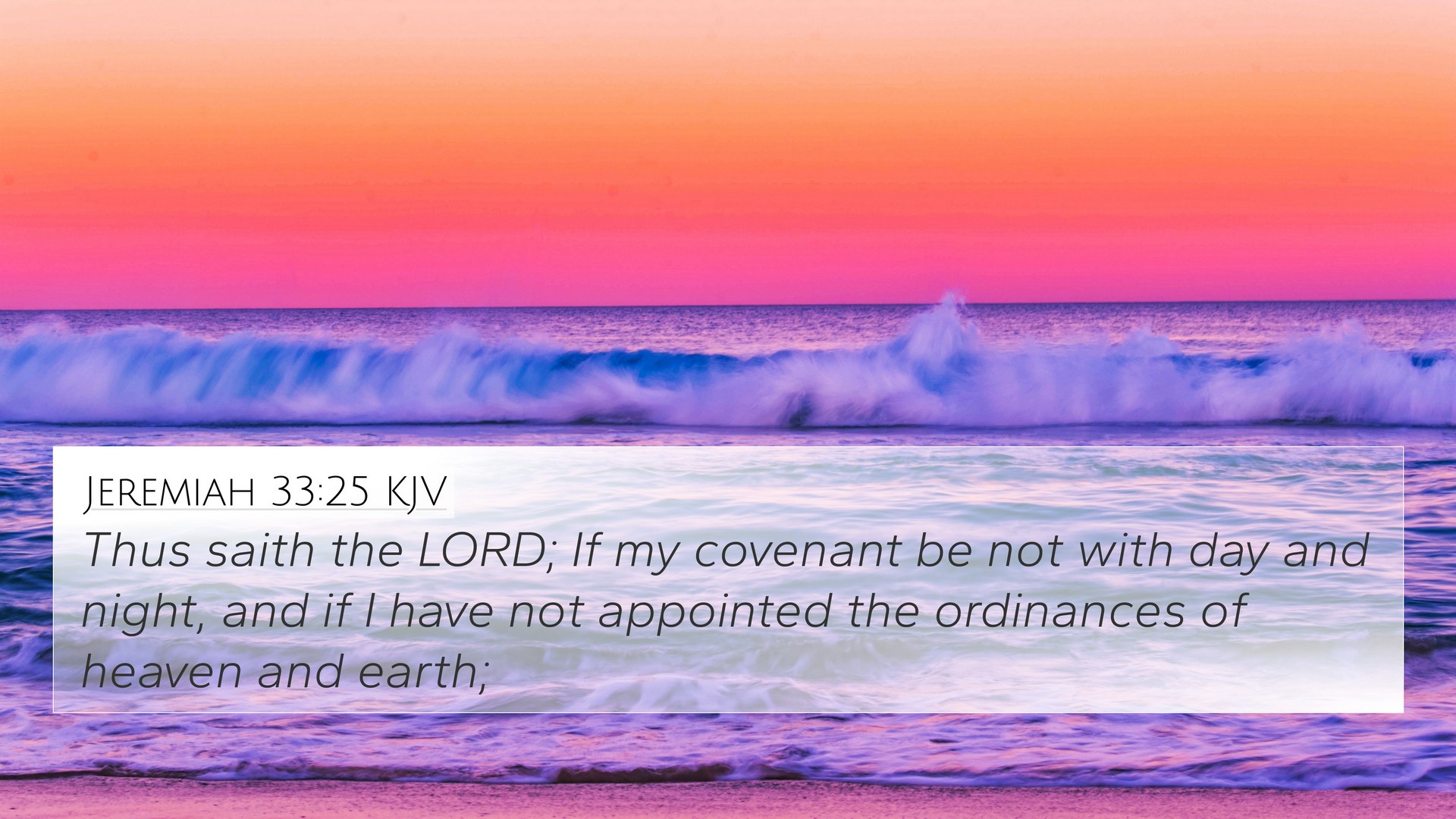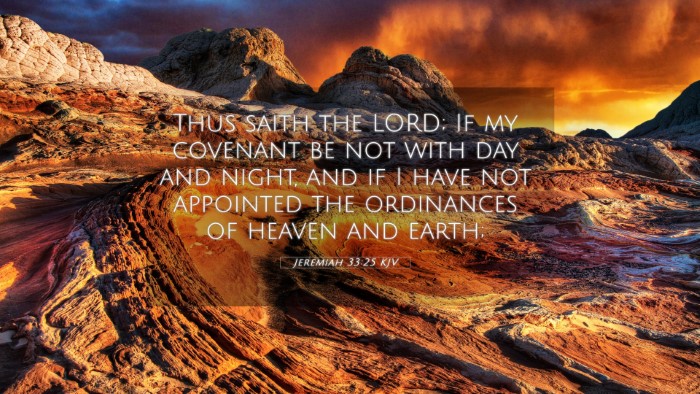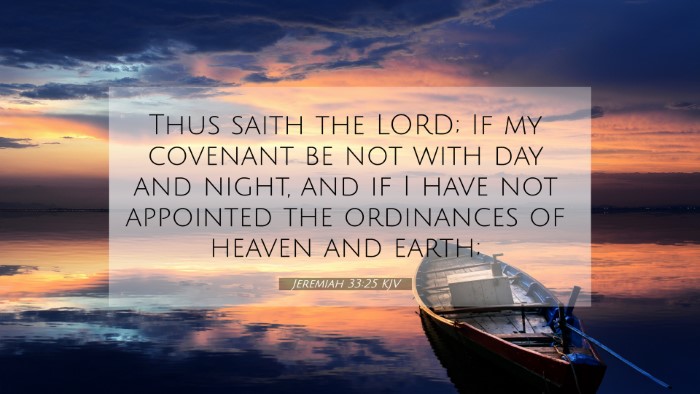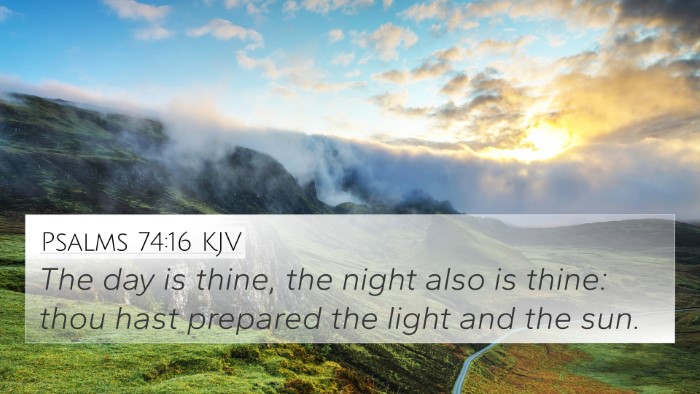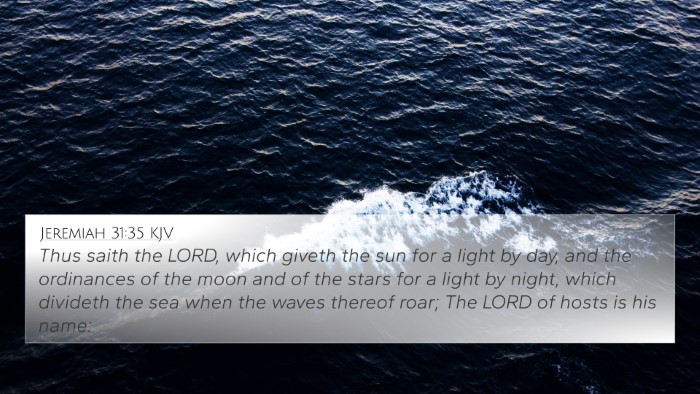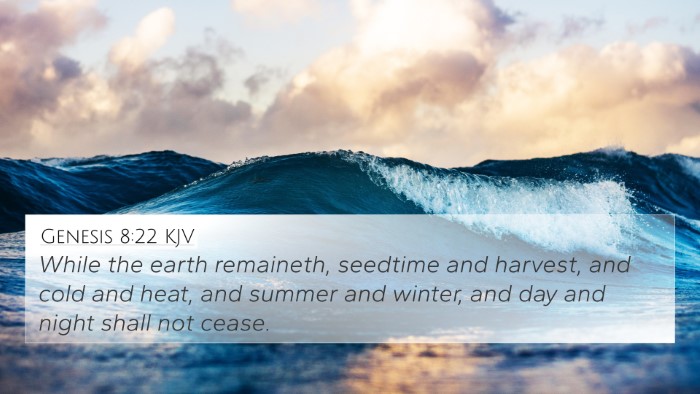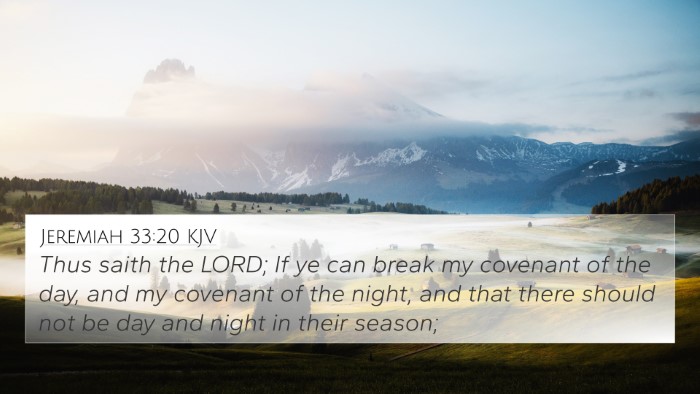Understanding Jeremiah 33:25
Verse: "Thus saith the Lord; If my covenant be not with day and night, and if I have not appointed the ordinances of heaven and earth." (Jeremiah 33:25)
Contextual Background
In the book of Jeremiah, God speaks through the prophet to address the people of Israel during a time of exile and despair. The verse emphasizes the steadfastness of God’s covenant with creation itself, which includes the reliable patterns of day and night. This assurance is critical as it ties God’s promises to the very nature of existence.
Commentary Insights
-
Matthew Henry:
Henry elaborates that God's covenant with day and night showcases the permanence and reliability of His promises. Just as day and night are constant, so are God’s commitments to His people. The 'ordinances of heaven and earth' refer to the natural laws established by God that highlight His faithfulness and power over creation.
-
Albert Barnes:
Barnes points out that this verse serves as a metaphor for God's unbreakable covenant with Israel. He emphasizes that the regularity of day and night acts as a reminder of God’s sovereignty and the assurance that His plans cannot be thwarted, even when circumstances appear dire.
-
Adam Clarke:
Clarke provides a deeper theological reflection by stating that this verse reveals God's absolute authority over all creation. He insists that just as God controls the cosmic order, so too can He control the fortunes of His people, ensuring their restoration and future hope in accordance with His promises.
Thematic Connections
This verse significantly ties into the broader themes of God’s faithfulness, sovereignty, and the nature of His covenant relationship with humanity. These motifs resonate throughout both the Old and New Testaments.
Cross-References
In understanding Jeremiah 33:25, we can explore various cross-references that enrich its meaning:
- Genesis 8:22 - Highlights God’s promise about the natural order of seasons and cycles, reminding us of His continual faithfulness.
- Psalm 104:19 - The psalmist reflects on the created order, which aligns with the established ordinances of heaven and earth.
- Jeremiah 31:35-36 - Stresses the unbreakable nature of God’s covenant with Israel, akin to the order of day and night.
- Lamentations 3:22-23 - Affirms that God’s faithfulness is new every morning, mirroring the constancy of day and night.
- Matthew 5:18 - Jesus speaks to the permanence of God’s word and promises, akin to the consistent laws of nature.
- Hebrews 13:8 - Reinforces the unchanging nature of Christ, paralleling the steadfastness found in God’s creation.
- Romans 8:28 - Illustrates that all things, including natural rhythms and divine purposes, work together for good for those who love God.
- Colossians 1:16-17 - Highlights Christ's role in creation, indicating His dominion over all ordinances and systems.
- Isaiah 54:9-10 - God’s commitment to Israel is likened to the stability of creation, linking back to Jeremiah's assertion of His covenant.
- Revelation 21:1 - A prophetic vision of a new heaven and earth demonstrates the ultimate fulfillment of God’s eternal covenants.
Applications for Bible Study
This verse serves as a reminder for personal reflection on God’s faithfulness and the everlasting nature of His promises. By utilizing tools for cross-referencing Biblical texts, believers can deepen their understanding of the intricate connections between scripture and their own lives.
Conclusion
Jeremiah 33:25 provides a powerful affirmation of God's unchanging covenant with all of creation. The sense of security offered through the reliable patterns of day and night is a source of hope for believers, reminding them that just as each day follows the night, God's promises and plans will surely come to fruition. Engaging in a comparative Bible verse analysis with related scriptures enhances one's understanding and fosters deeper faith in God’s unwavering commitment.
